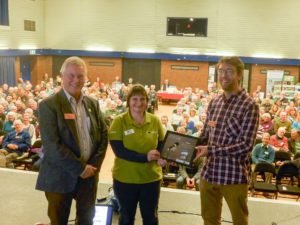Surveyors urgently needed at Pagham
We need volunteers for a survey which, we hope, will lead to some very tangible outcomes.
The foraging areas for wintering Brent Geese are under pressure around Pagham Harbour from development – pressures that will only increase in the years to come. SOS is working with RSPB and Natural England to try and ensure that the fields that the Brent Geese use in winter will be protected from development, and the first step in doing this is to gather enough information to build a map showing the fields where they graze around this area. (Such a map in the West Solent has proved successful in ensuring that the Brent Geese foraging areas there are protected from development).
To create such a map RSPB staff need our help to carry out surveys to find out where the Brent Geese graze around Pagham/Medmerry. Details below. Please let Steve Webster or Ivan Lang know by 5pm on Wednesday whether you can help.
Tel: the Reserve Office 01243 641508 mobile 07703 885315 or email ivan.lang@rspb.org.uk
Further details and relevant maps also available from Richard Cowser: cowser@btinternet.com
Brent Goose and Wader Survey 2018 – Instructions:
All survey observations to be undertaken from publicly accessible areas, within your allocated area. Initially we recommend driving to key observation areas and trying to spot large flocks of Brent, or other waders/waterfowl. If not all of your survey area is accessible by vehicle there might be some walking to try and establish presence of birds. If you see large flocks in flight it is worth trying to keep track of them to see if they land within your survey area.
Please record;
- Your name, weather conditions, survey area (1,2,3 or 4) and date.
- Time that birds were seen and the field. (You will need to then identify this field on the recording map, simply numbering the field).
- If you can, identify the crop in the field, or record it as grass, unidentified arable crop, or unidentified vegetable crop and try to assess the sward height in cm.
- Try to assess the number of birds of that species within that field. If there are different species within the same field, record the numbers against the relevant species.
- If you witness the birds being disturbed, please try and complete the disturbance parts of the survey form using the codes below. It is also worth recording on the survey map which direction the flock leaves in, or whether it returns to the original field.
Disturbance source categories;
Dog walker DW Picnic P
Dog off lead DX Motor vehicle MV
Dog on lead DL Aircraft AC
Cycling C Birdwatcher BR
Jogger J Horse Riding HR
Walking / rambling (without dog) W Metal Detecting MD
Kids playing (with or without parents) KP Bird of prey/wild mammals BP
Other (please specify)
The behaviour of birds as the result of recreational disturbance should be recorded using the categories below;
No response (NR)
Alert, heads up, no change in birds’ position (A)
Alert, birds walked/swam short distance and resumed previous behaviour (W)
Birds flew short distance (<50m) and resumed previous behaviour in general area (f)
Birds took flight and flew more than 50m (F)
Direction and distance of movement caused by disturbance and where possible destination should be plotted on the survey map.
How to submit your results.
During surveys if any problems should arise, both in terms of questions regarding the methodology and any health and safety concerns, please contact the reserve office at Pagham on 01243 641508, and talk to either Ivan Lang or Steve Webster.
At the end of a survey, either hand all your forms into the visitor centre at Pagham, or old onto it for the next survey, if you are doing more than one date or area. After the last survey date, all survey data and maps should be handed in at the centre.
Equipment required;
- Food and water
- Sun and wet weather protective clothing
- Binoculars
- Telescope and tripod (if required)
- Survey maps, one will be required per survey
- Survey recording sheets, one per survey
- Diary recording sheets and continuation sheets
Health and safety
As a volunteer, you are under no obligation to participate or continue with a survey if circumstances arise. Volunteers are responsible for their own health and safety, and should not put themselves in a position that could place them, or others, in danger. You should never undertake any work if you have concerns about your own or others’ health and safety. You are under no obligation to visit a particular site, even if the organisers have requested it.
Before undertaking any activities, every fieldworker should consider the particular health and safety hazards associated with their individual study sites and whether their individual circumstances and medical conditions expose them to particular hazards. Individuals should assess any potential risks arising from their fieldwork activities, which should include considering the risks specific to individual sites. You should think about what precautions should be taken against any risks.
Always obtain permission from the relevant landowner or tenant to enter any private land not accessible via a legal access route as prescribed as part of the Public Rights of Way network. Do not continue fieldwork if a landowner later revokes access permission. Please abide by The Countryside Code
